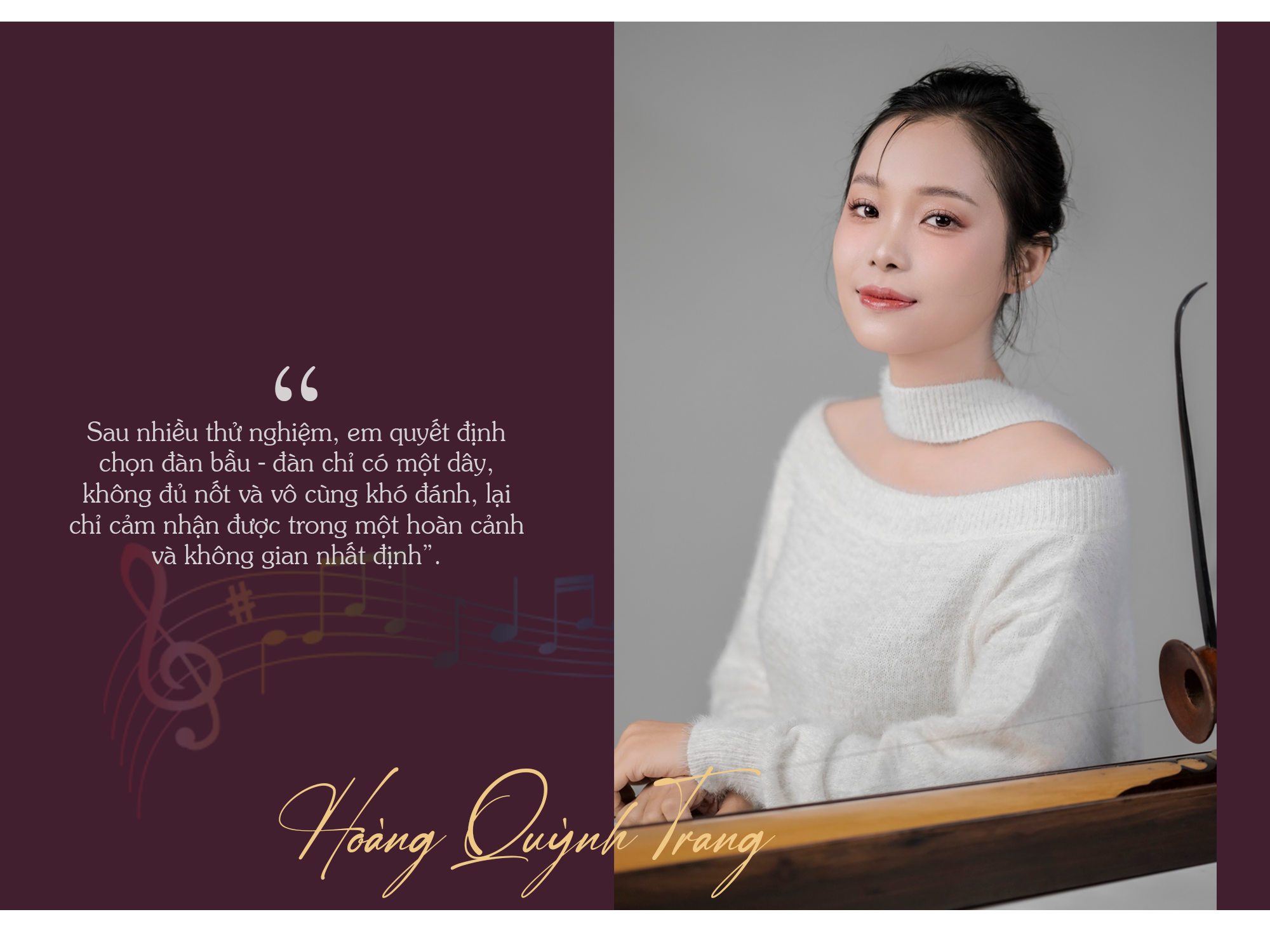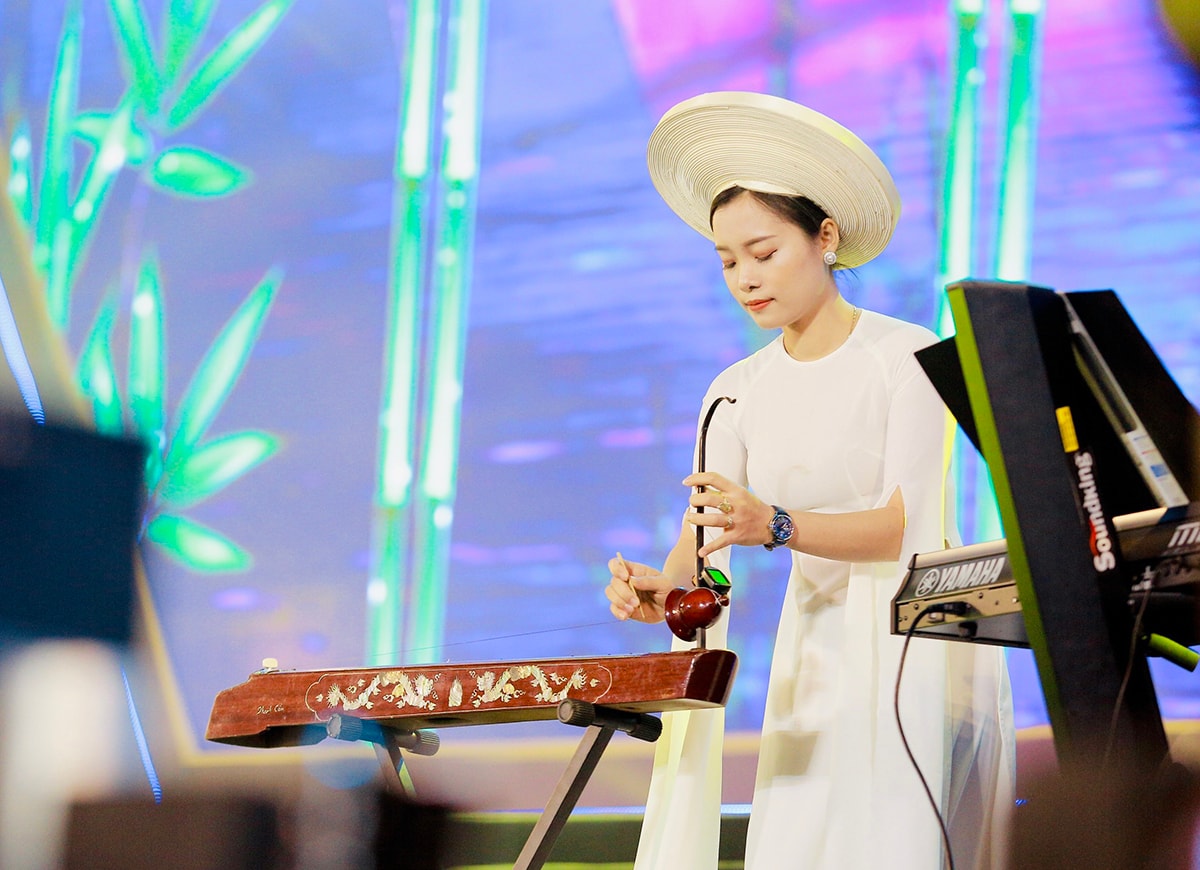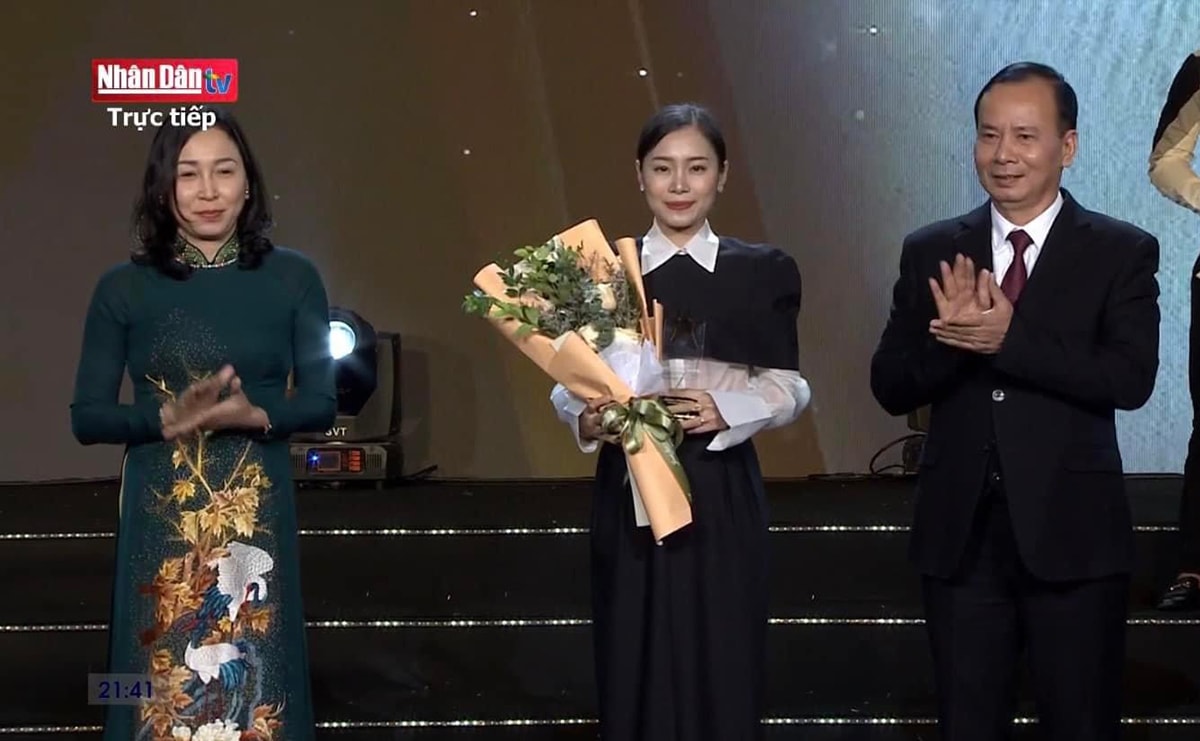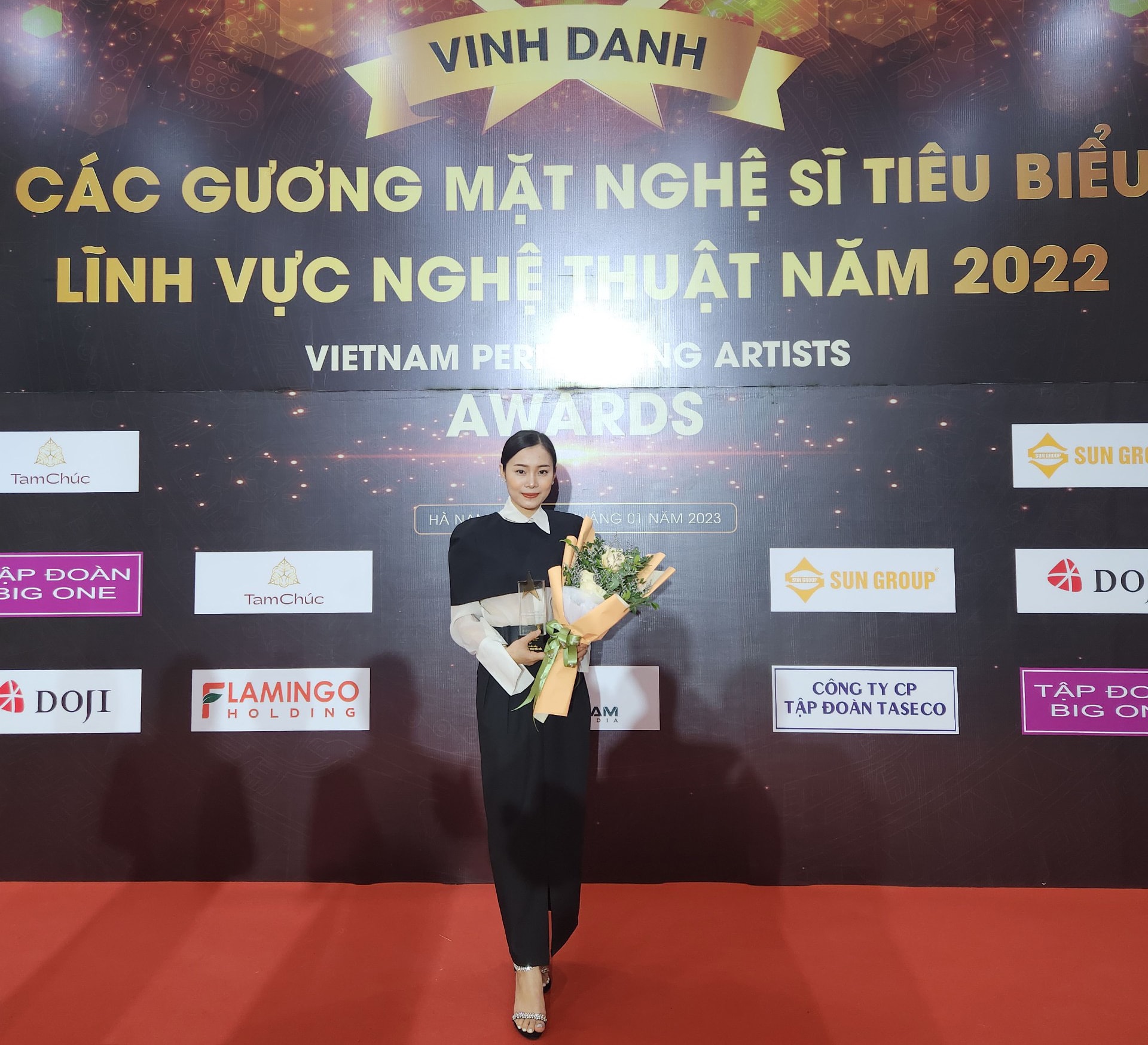


Trang said that since childhood, she was immersed in traditional melodies from her grandfather - a traditional musician who taught at Nghe An College of Culture and Arts. Her grandfather taught Trang that there is no beautiful melody that does not come from a loving heart, a soul that is deeply moved by beauty. Therefore, Trang was built on a solid foundation from that first musical aesthetic.
Growing up a little bit, Trang also got acquainted with electronic musical instruments, and thanks to her family's "quality", she quickly mastered them and was chosen to perform on many stages. However, it seemed that the black and white keys on the organ were not enough for the creative girl in music to unleash her full potential; in middle school, Hoang Quynh Trang returned to traditional musical instruments. The zither, the two-stringed fiddle, the monochord... had a magical charm, quickly attracting Trang. "After many experiments, I decided to choose the monochord - an instrument with only one string, not enough notes and extremely difficult to play, and can only be felt in a certain situation and space" - Trang expressed.

The closer Trang gets to the monochord, the more she conquers it, the more she loves it, the more she is attached to it like flesh and blood. Hoang Quynh Trang confided: “I don’t know why, but a young person like me feels passionate when playing the monochord. I feel like I am in my own musical world.” And from her first attempts with intermediate-level monochord pieces, she was selected to study at Nghe An College of Culture and Arts for 6 years.
The difficulties Trang faced while studying both culture and art are countless. In the morning, she went to school like her peers, and at 1:30 pm every afternoon, she cycled to Nghe An College of Culture and Arts to study music. During the 6 years of having to stay far from home to study, but as long as she thought about her goal, Trang was determined to keep going. When asked if she had ever felt discouraged because of this one-stringed instrument, Trang replied that she had not, but the hardship was real and she always told herself to overcome it. The hardship did not come from having to do well in studying at two schools with countless subjects, but from practicing the guitar techniques until her arm was paralyzed and she still could not master them. "As time passed, I gradually grew up, and I realized that the path I was taking was the right one," Trang shared.


“When I took the entrance exam to Nghe An College of Culture and Arts, there were a few people still playing the monochord, but after 6 years, only I remained. Therefore, when I finished school, the Provincial Traditional Arts Center, which at that time was the Provincial Ethnic Song and Dance Troupe, attended the graduation ceremony and recruited me, but the path of education was still far, so I had to refuse,” Trang said. Those were the days when she had to hesitate between the educational ladder and job opportunities. For those who study the monochord, just graduating from intermediate level is enough to be able to play the instrument well, but for me, to reach the pinnacle of glory in the profession requires diligent training. And Trang chose for herself a more difficult path, going to be able to return.
University is the environment where I have been trained to conquer higher levels of monochord playing techniques. There are techniques that I have never known before, never practiced, but now I can possess through months of hard work at school. Especially the love and emotions when sitting on the instrument. It is the examples of my predecessors, of my teachers, who exude the energy of dedication to their profession, that have given me a whole sky of beautiful and unique folk music. Then, difficult works such as Len Ngan, Tay Thi, Que Me are expressed by Trang with all her heart and technique of a skillful player.

“When I entered school, there were students who had studied at both elementary and intermediate levels and then went to university, but by the time of graduation, out of 5 people who studied at university level, only 2 remained in the profession. That shows that not everyone who has studied properly can stand in the profession of playing the monochord,” Trang confided. That’s because there are people who play the monochord well and have excellent techniques but don’t have enough love for it; there are also people who, even though they passed their lessons in school, when they go on stage, it’s hard for them to mature into a dedicated artist with the monochord. Therefore, people call the monochord a harsh profession, whoever comes to it not only needs talent but also needs more intense passion.
Talking about the awards she has won, Trang believes that there is no “easy” prize, no song is easy to play. To have the music that won the Silver Medal in the Professional Stage Festival with the ensemble piece “Ru ve nguon roi” or “Khuc biet ly” and the Gold Medal at the ASEAN Music Festival, Trang had to go through days of hard training.

“The difficulty and also the beauty of the monochord lies in the hard work. Therefore, when I receive a performance, I always have to practice hard, practice until my arms are sore to play it quickly and smoothly. Then I also need to feel the emotion for each scene, put all my feelings into it. Only then can I have a good monochord piece,” Trang said.
And “Khuc biet ly” – a very good monochord piece that Trang really likes, the music director once “told” her that it was very difficult, would she be able to play it? At that time, Trang knew she would have to perform really well, without thinking about the award. And after performing, Trang was not surprised when she received the noble award, because the days of hard training had shown her that she was very worthy of such a sublime “Khuc biet ly”.
At the end of 2022, Hoang Quynh Trang was honored to be named at the ceremony honoring outstanding national artists. This is a prestigious award from the Ministry of Culture, Sports and Tourism given to artists with many contributions and outstanding achievements. For Trang, dedication to her profession is always evident in her. This little girl always tells herself: Although the material values that the profession brings are very small, the happiness of shining on stage, when immersed in the melodious sound of the monochord is something precious that cannot be exchanged for anything!


